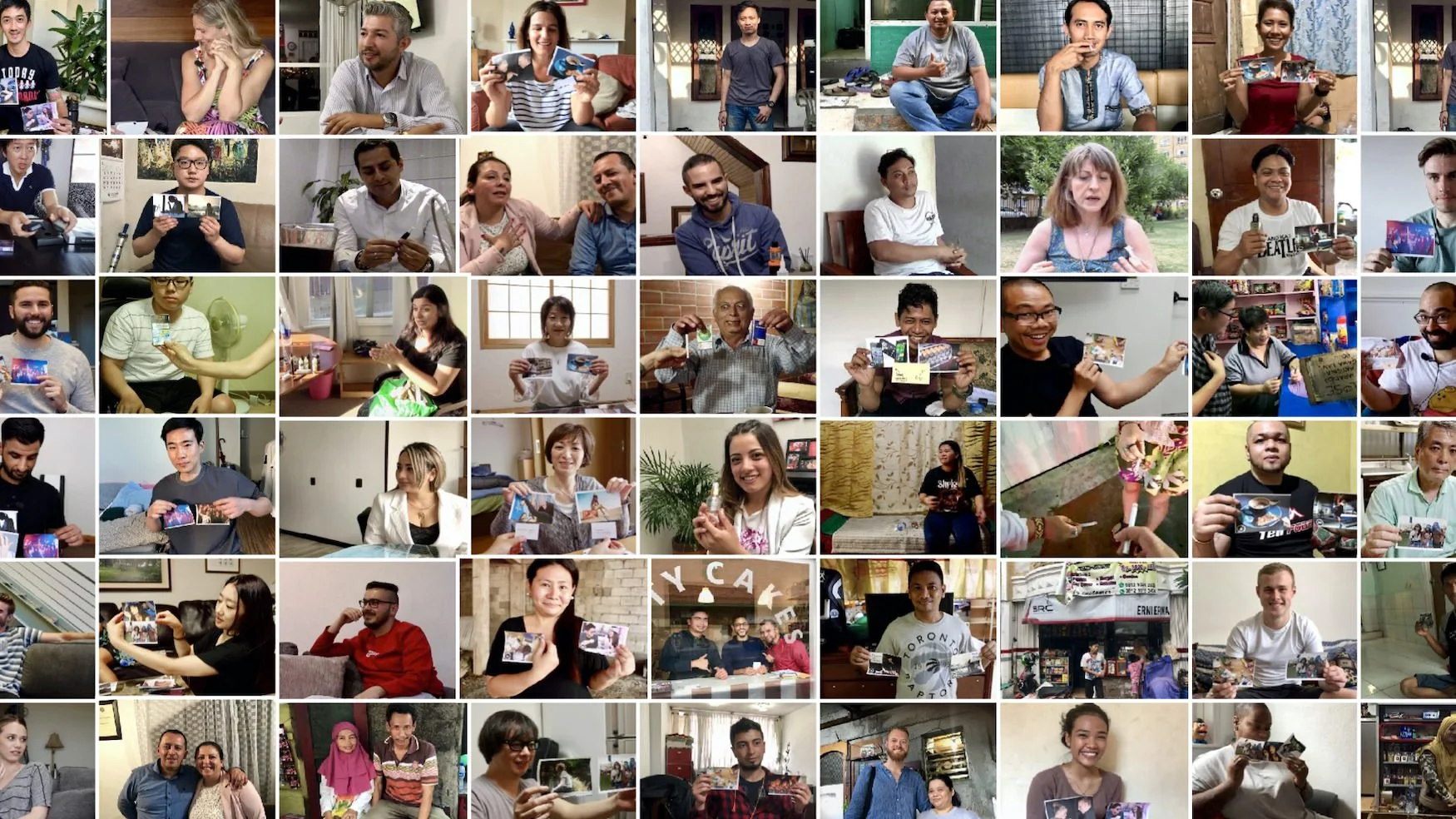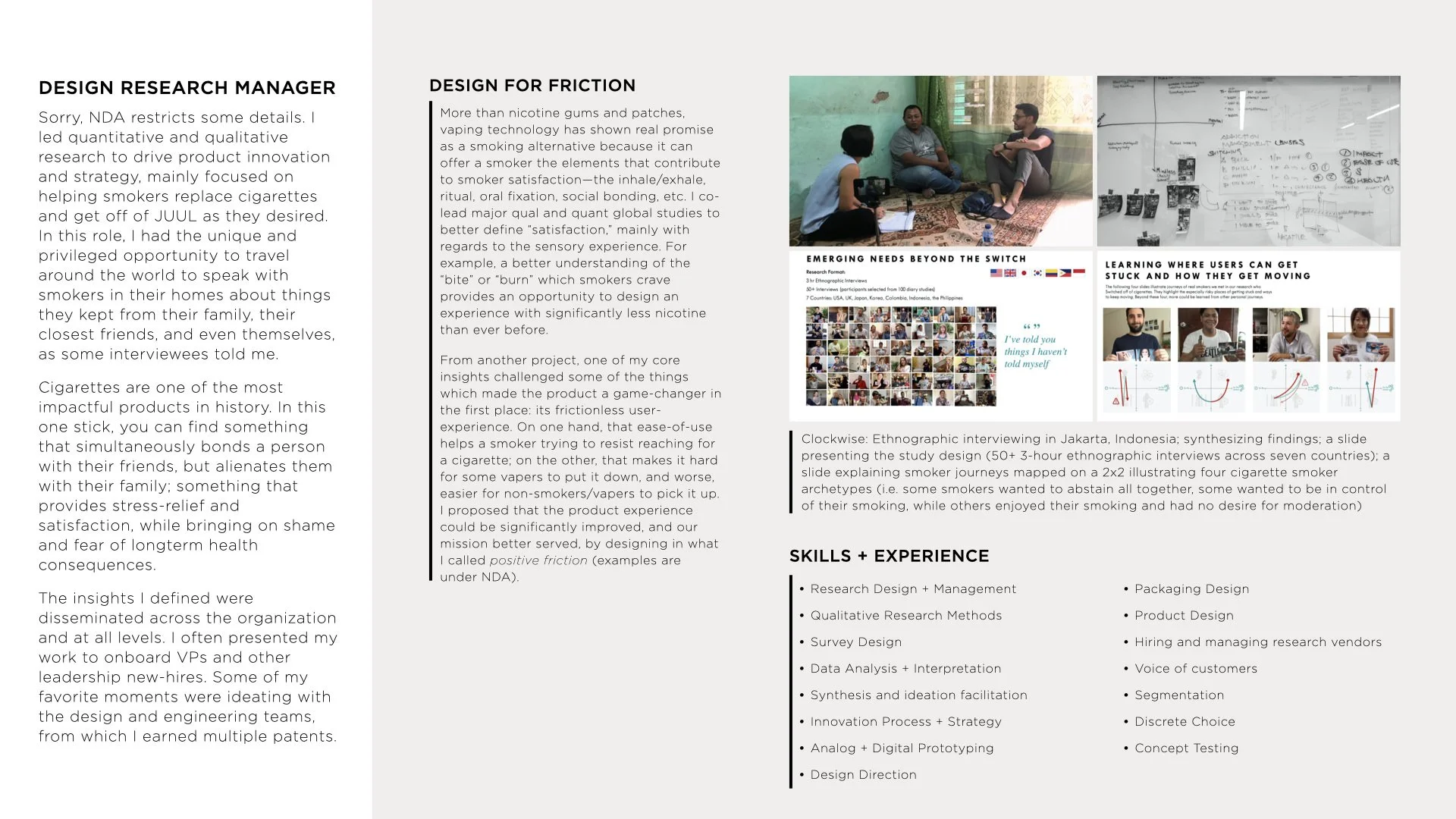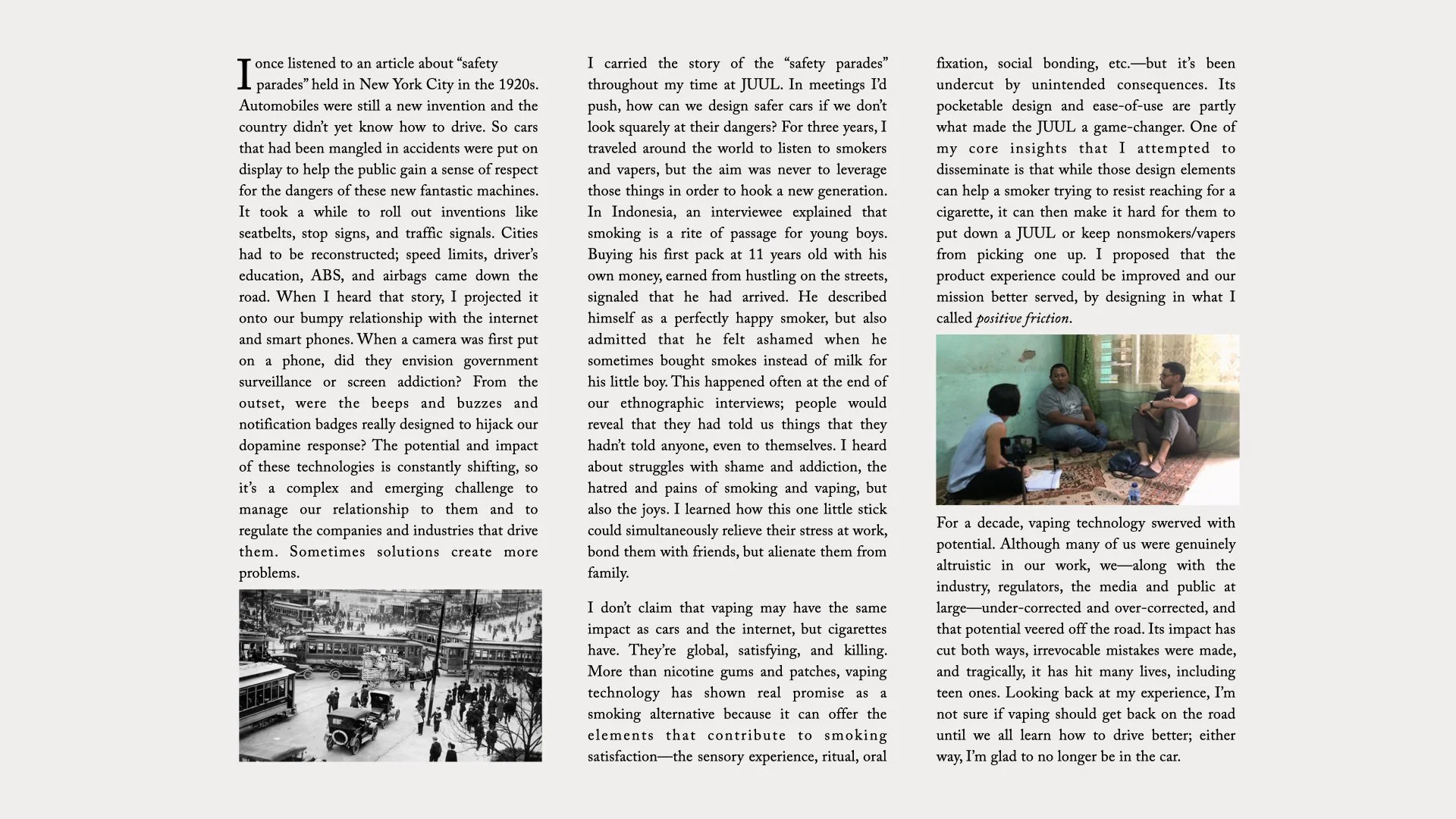
“Tobacco kills up to half of its users…more than 8 million people each year.”
— World Health Organization
“Cigarette smoking kills more than 480,000 Americans each year.”
— US Department of Health and Human Services
Design Research Manager
Through my time working at JUUL, I gained a deep and personal experience at the intersection of design, ethics, and technology. As a user researcher and product strategist, tasked to understand the needs and desires of smokers globally, I traveled the world and heard a fascinating breadth of personal relationships to smoking. In many interviews, participants would share that they had told me things they hadn’t told close friends, or family, or even themselves. Their stories, the story of JUUL, and that of the industry at large, are more complex and nuanced than the public dialogue and media portray. Cigarettes are one of the most impactful products in history. In this one little stick, you can find something that simultaneously bonds a person with their friends, but alienates them with their family; something that provides stress-relief and satisfaction, while bringing on shame and fear of longterm health consequences. On average, a smoker who wants to quit, has to try 20 times before finding success, which demands an incredible amount of resolve and support! As smokers attempt this journey, many falter and their feelings of guilt sink into shame. This, in turn, bleeds into other aspects of life and shatters their views of self-worth. And if a smoker does find success through vaping, the spectre of replacing one addiction with another looms large.
Vaping has shown significant promise to help smokers who are trying to quit, as well as terrible risks to not just smokers, but even to vapers and those who have no interest in either. As a society, our relationship to these technologies are still developing. JUUL was an ambitious and altruistic start-up that shifted the paradigm of an emerging technology. Brilliant advances were made, but also severe missteps that set forth regrettable unintended consequences. Substantial criticism is certainly deserved. Although much of it is mischaracterizing, I have always seen the scrutiny as essential and believe there still exists an important dialogue to be had. Its infamous reputation may be irreversible; I worry that it overshadows my involvement, but worse, that it may cut short the great potential to improve public health around the world. As JUUL continues forward, I hope it moves in a manner deserving of public trust, so it may regain the opportunity to one day achieve the potential many of us had sought.

